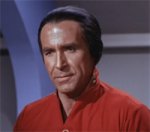Nice article but it dodges the real question by saying that the first chicken egg must have come from a bird that was not quite a chicken. Okay, but where did that bird come from? I understand well that aspect of the theory. The claim is that all living things came into existence through evolution, but every explanation of the model has lesser evolved animals already existing. Do you see the flaw?
Who claimed "all living things came into existence through evolution"? No one did.
You seem to be mixing your terms up. The origins of life itself is called Abiogenesis.
https://en.wikipedia.org/wiki/Abiogenesis
See the right side picture that shows a timeline? You're talking at one time about the very top of that chart, Human origins, then you casually mention the very bottom of the chart, Earliest Life. It's as though you are trying to match those two ends together and wondering why they don't match, when you're cutting out essentially "the entire remainder of the chart".
Life did not go from molecules to a baby. It went from molecules, to some sort of organized molecules, over and over...eventually resulting in some almost self-replicating earliest form that we consider "life". But it would still be some microscopic bacteria-like life, almost indistinguishable from the complex molecules it originated from. It would have to continue to change over billions of years to end up in the variety of life we know on earth. How did that first bacteria-like life come into being without other life replicating into it? I think that's what you're asking?
Because chemical reactions, molecular replication, etc., can occur in non-living matter, and it was such complex chemical interactions that occurred in just the right way that resulted in a set of molecules that were distinct from it's progenitors. Imagine two molecules interacting chemically and creating a new molecule. Is this birth? No, and yet it's similar, and perhaps that's what you're missing.
While features of self-organization and self-replication are often considered the hallmark of living systems, there are many instances of abiotic molecules exhibiting such characteristics under proper conditions.
Keep in mind that even the transition from elements into these complex organic precursors to life, was incredibly, ridiculously complex, and is it's own are of study you could spend a literal lifetime on, easily, and only chip away at it.


